Scam Alert: Some ‘Rescue’ Groups Are Buying Dogs From Breeders
They call them “puppy-mill rescues.” But they might more accurately be called simply “puppy-mill purchases.” As The Washington Post exposed, so-called “rescue” groups attend puppy-mill auctions and—flush with money from donations—pay breeders hundreds or even thousands of dollars for a single dog.
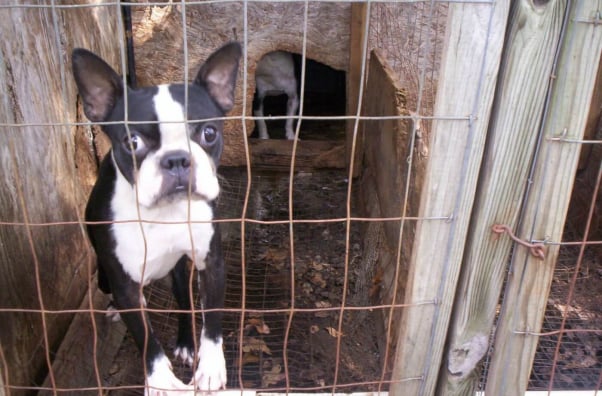
The auctions used to be basically swap meets for breeders or events at which a true rescuer could buy dogs breeders no longer wanted for a nominal fee in order to put them up for adoption. But in the last decade, a handful of purebred “rescue” groups have been using donation money to offer top dollar for dogs. Through online fundraisers, the groups collect tens of thousands of dollars for every auction, under the guise of rescuing dogs from puppy mills. They can then sell them for exorbitant fees to buyers wanting a specific breed. But breeders admit that they’re selling the dogs they no longer intend to use and that they’re well aware that “rescuers” will pay practically any price they name in order to “save” a dog.
“A breeder friend of mine said she’s thinking about saving her puppies until they get about a year old and tak[ing] them to the auction,” one attendee said. “The rescue people will pay more than the pet-store brokers.”
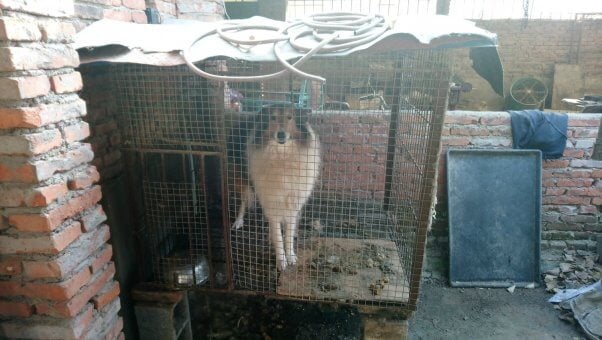
One breeder told the Post that he got $1,750 from a “rescuer” for an English bulldog who was 19 months old and suffering from allergies—much more than he could have sold her for through a pet store. And puppy peddlers are now making a pretty penny selling “designer crossbred puppies,” including puggles, morkies, labradoodles, goldendoodles, and shipoos. “That’s the one thing that rescues will get in competition over,” an auction owner commented. “They’ll stand right there and look each other in the eye and outbid each other. By and large, it’s the rescuers knocking each other out.” These “designer crossbreeds” include many of the same mixes that shelters have been adopting out for decades.
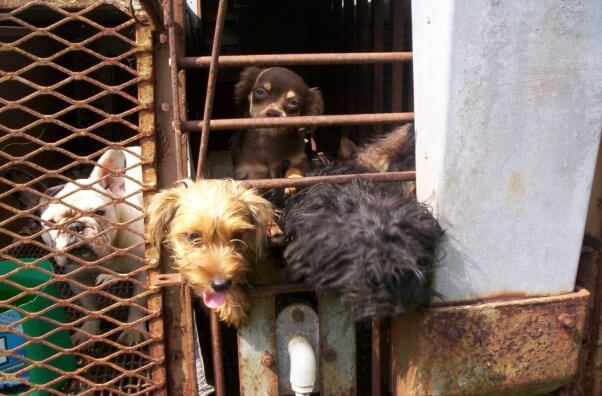
Many of the “rescuers” are simply ill-informed people with good intentions. Some admit that when they shelled out huge sums of money for dogs at auctions, they thought that they were bidding against breeders. But other purebred rescue groups knowingly and willingly rake in donations in order to “save” dogs from puppy mills and then sell them as “rescues” to high-paying buyers. In either case, they’re propping up the dog-breeding industry. Handing thousands of dollars to the very people who are exacerbating the animal-homelessness crisis allows them to keep profiting from animals’ suffering.
As cities enact bans on sales of puppy-mill dogs to try to deter breeding by cutting off a profit source, breeders are finding a new distribution channel and source of revenue through these “rescue” groups.

Buyers of these dogs should be aware that by doing so, they’re not only exacerbating the animal-homelessness crisis but also contributing to an increase in the number of dogs who may suffer from a lifetime of debilitating health problems caused by being bred to have specific physical characteristics. For example, Cavalier King Charles spaniels frequently suffer from severe pain that’s caused by their skulls pushing on their brains because they’ve been bred to have the desirable trait of unnaturally shaped heads. French bulldogs often suffer from respiratory problems that can be corrected (partially) only with surgery because they were bred to have the desirable flat face.
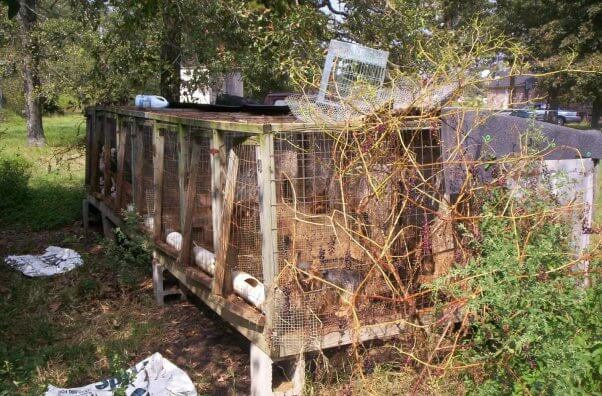
And while the Post did a great job of exposing errant “rescues,” the article said almost nothing about the abuse that dogs endure in puppy mills. The one facility that the Post highlighted (read: glamorized) for having indoor kennels and outdoor runs isn’t typical of such facilities, which usually confine dogs to hutches and crates and deny them desperately needed medical care. And all puppy mills still force female dogs to undergo impregnation, pregnancy, whelping, and loss of their babies at just a few weeks old over and over and over again.
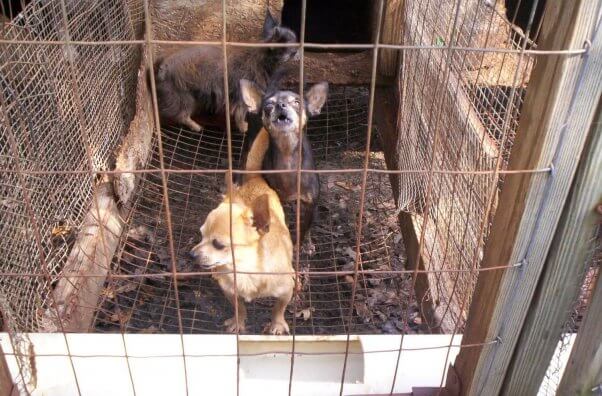
True rescuers help animals—they don’t prop up and perpetuate the pet trade. Any group wanting to help dogs can help those already waiting desperately in shelters for a home. Of the millions of unwanted dogs flooding shelters every year, an estimated 25 percent are “purebred.” Plenty of people buy them as gifts or on a whim only to abandon them when the novelty wears off and they don’t want the work or expense. There’s no shortage of homeless dogs in the U.S., and funneling money into breeding operations will never benefit animals.
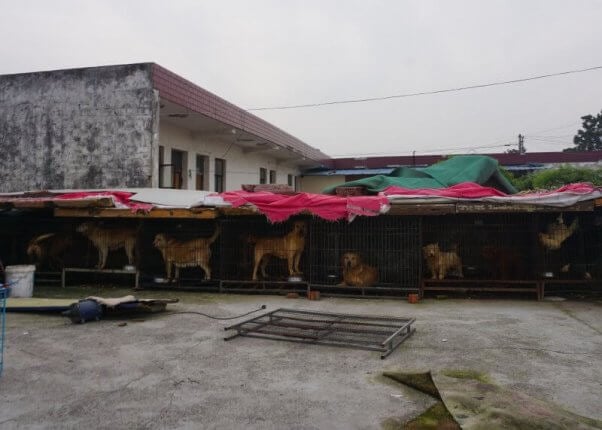
Before you donate to or adopt from a rescue, especially one that claims to do “puppy-mill rescues,” learn how they acquire animals and what they pay for them. And of course, help combat animal homelessness by always spaying and neutering your animals and adopting, never buying, animal companions.

